Russian blues are a gentle breed with a stunning blue-grey coat. They make great family pets being quite social, they typically live between 15 and 20 years.
| Russian Blues | |
| Weight | Male: 4.5kg – 5.5kg / Female: 3kg – 4.5kg |
| Lifespan | 15 – 20 years |
| Colouring | Grey-blue coat with green eyes. |
| Temperament | Gentle, affectionate cats who are quite social. They make great family pets. |
| Similar Breeds | Chartreux, British Shorthair |
Contents
Russian Blue Appearance
Russian Blue’s are exquisitely beautiful cats that are often mistaken as being grey in colour.
Upon closer inspection, you will see that they are in fact blue (hence the name), with a subtle silver tint to their hair which gives them a very distinctive looking coat.
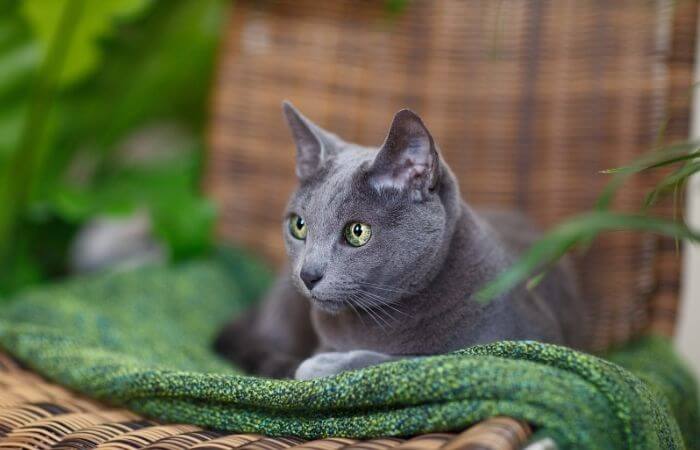
Which combined with their striking vivid green eyes gives the Russian Blue an incredibly distinctive look.
They are a relatively long bodied cat with fine thin bones giving them an elegant look.
Russian Blues are a natural breed which originated from the port town of Arkhangelsk in Russia (of course) about 150 miles from the arctic circle, an extremely cold place, where they had to be very tough to survive. Hence their short double density coat that they have.
Russian Blues don’t shed much either compared to other cats, they shed of course during the hotter months but for the density of their coat their shedding is surprisingly minimal.
Russian Blues were first brought to Europe around 1860 via merchant ships and were later introduced to North America around 1889.
Russian Blue Temperament
Russian Blue cats have a delightful temperament which makes them an ideal fit for family homes or as a service cat.
They are regarded as being quiet, well-behaved stately cats. They are not vocal cats and will only meow when they want you to feed them or give them some fuss.
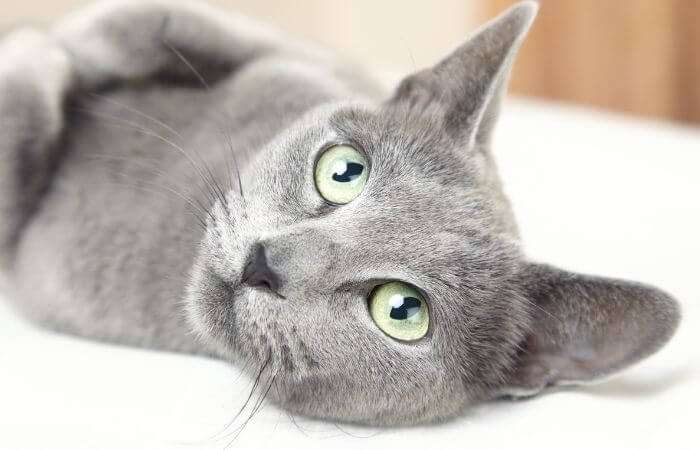
Russians are one of the most intelligent breeds of domestic cat. They love playing with toys, climbing and running around your home.
Unlike lots of cats they are not destructive and it is rare that they will destroy your sofa by scratching it to bits.
So long as a scratch post is provided as an alternative they are far more likely to stick exclusively to that than most other cats will.
Russian Blue kittens are very high energy but as they get older they become more sedate however they still retain their playful nature well into their later years.
Russian Blues are one of the few breeds of cats that are relatively easy to train, you can teach them to do simple things like play fetch, come when called and even sit on command!
They are incredibly gentle cats that are often quite shy when it comes to meeting strangers, however once you have earned the trust of a Russian Blue cat they will consider you to be their friend (or servant) for life as they are an incredibly loyal breed of cat.
People often remark on how much more of an affectionate relationship they are able to build with their Russian Blue cat than with other cat breeds.

Russian Blues will frequently follow their throughout the house just so they can stay near you, they are also known to occasionally climb on your shoulder and ride there as well as coming and giving you frequent head butts.
Typically Russian Blues range from quite shy or nervous to slightly reserved, they are not outgoing cats. Consequently they like to take their time to get to know new people at their own pace.
Also due to their nervous disposition they are more likely to bolt if something scares them when they are outside, this can cause them to become disorientated and then may lead to them having difficulty finding their way home. For this reason they are better suited to being indoor cats.
Russian Blue Health
Russian Blues are usually very healthy cats gifted with a natural athletic disposition and no genetic tendencies towards any particular disease or illnesses.
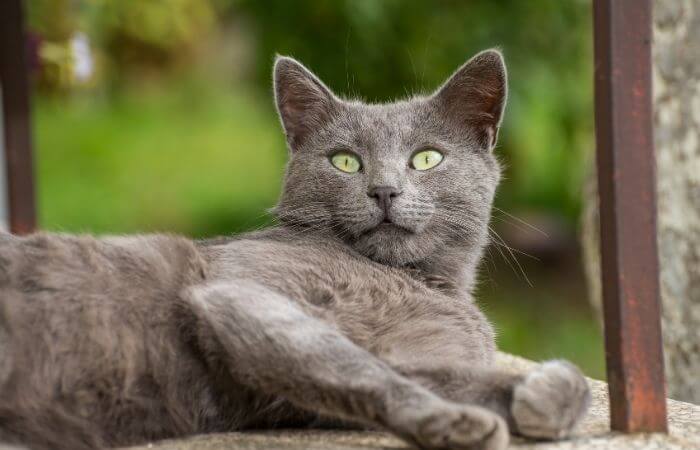
Russian Blues often have very big appetites so it is advisable to ensure that you control and measure their diet carefully as they could put on a lot of weight which may lead to future health problems.
With a regular and healthy diet, combined with plenty of opportunity for exercise and regular checkups with a vet, Russian Blue cats can live well into their teens and some have been known to live as old as 25.
Caring for a Russian Blue Cat
Caring for a Russian Blue cat is relatively simple for any experienced cat owner.

Like most cats they are very independent and will not require a high level of care however it is important that you feed them correctly, ensure they are sufficiently well-groomed and that their litter box is kept clean.
Full details of exactly how to care for your Russian Blue can be found below:
Feeding a Russian Blue
Russians have a very good appetite and will do their best to convince you that they haven’t been fed even when they have.
It is therefore important, in a household where more than one person may feed your cat, to ensure that you have a system to ensure that your cat isn’t fed extra meals because Russian Blues will very easily put on excess weight if overfed.
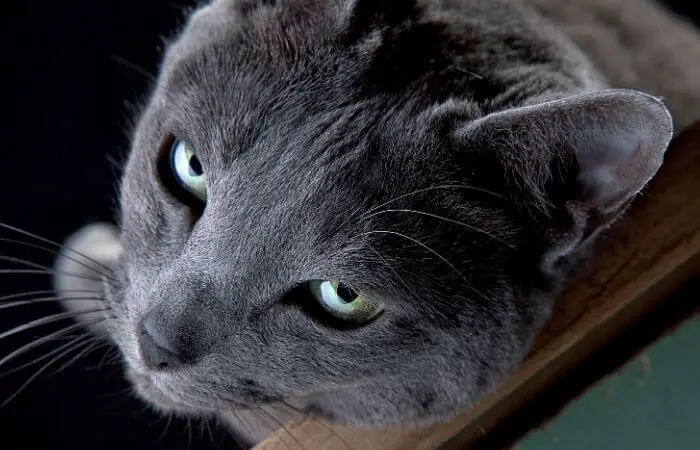
Russians should be fed three times a day as kittens. Then from the age of seven months onwards this should be reduced to two feeds a day.
It is recommended that top-quality dry, grain-free, cat food is fed to Russians. This is because premium dry cat food doesn’t contain empty fillers that are devoid of nutrients that you often get in cheap dry food.
Because premium cat food doesn’t contain empty nutrients you will need to feed your cat less than you would of cheap dry cat food so we recommend that you feed your cat no more than half a standard-sized cup per serving.
It is also a good idea to give your Russian Blue a small amount of high quality canned cat food. It is a good idea (for any breed of cat) to mix this with some additional water.
This is because cats are notorious for not drinking enough water which can potentially lead to kidney problems in your cat’s later years.
In fact, it is recommended that cats are given a cat water fountain as they prefer drinking moving water than still water.

By sticking to these rules your cat should have a healthy diet and shouldn’t put on any excess weight, the only other thing that could be worth adding to your cat’s diet occasionally would be a small amount of hairball medicine every month or so to loosen up hairballs and help your Russian Blue cat get hair out of their digestive system.
The key things to remember when it comes to feeding a Russian Blue are:
- Do not overfeed them as they are prone to putting on weight.
- Half a cup of high quality dry food twice a day for adult Russian Blues & three times a day for Russian kittens.
- Add in a small amount of watered down premium wet food to keep your cat’s kidneys healthy.
- Consider using a water fountain to encourage more regular drinking.
- Give them a small amount of hairball medicine every month to help them get rid of hair in their digestive system.
Russian Blues and Litter Boxes
Russian Blue Cats are extremely clean cats so will not tolerate a stinky litter tray for long. It is therefore very important to ensure that you keep your litter box as tidy as you possibly can as they will quickly abandon it and find somewhere else to relieve themselves if they consider it to be too stinky.
Russian Blues will happily relieve themselves outside with no problems, however they are quite nervous cats so are better suited to life as an indoor cat unless you live in a very quiet area.
Bathing
Cats don’t really need to be bathed as they do a great job themselves. However if they ever get covered in oil, or some other nasty substance then they will need a bath.
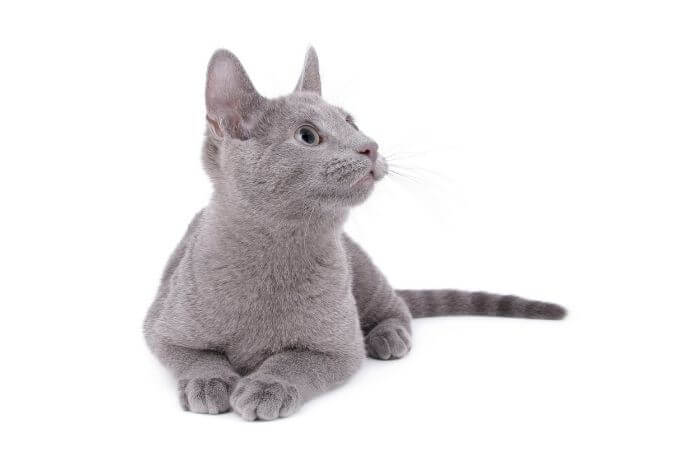
So it is a good idea to get your cat used to baths while it is a young kitten so if needs be they will be willing to be washed.
Russian blues are short-haired cats so will require a purpose-made short hair cat shampoo. As with all cats ensure that shampoo doesn’t get in their eyes and mouth and give them a good towel rub after to dry them off.
Grooming
Russian blues are very easy to care for and do not require much grooming at all.
Over-grooming a russian blue can make their coat too thin if you’re not careful. A light brushing once or twice a week is more than sufficient.
As an Amazon Associate I may earn a small fee from qualifying purchases at no extra cost to you. This helps us run the site, so thanks for your support!


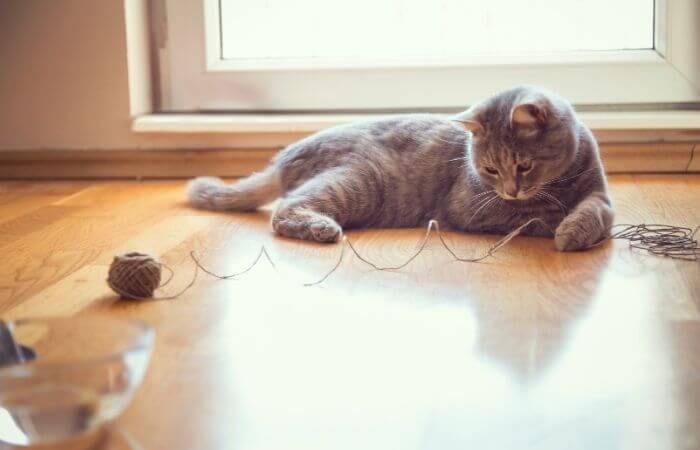

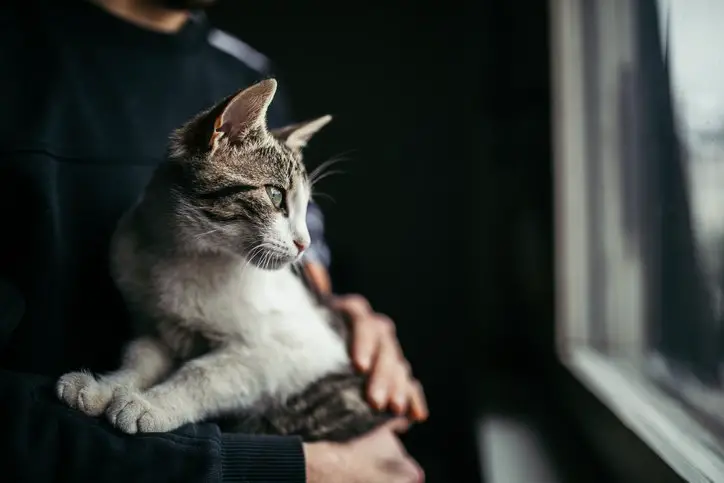
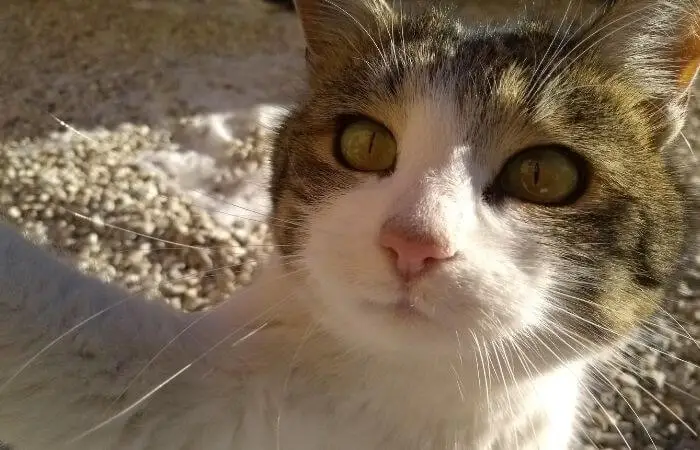


Leave a Comment